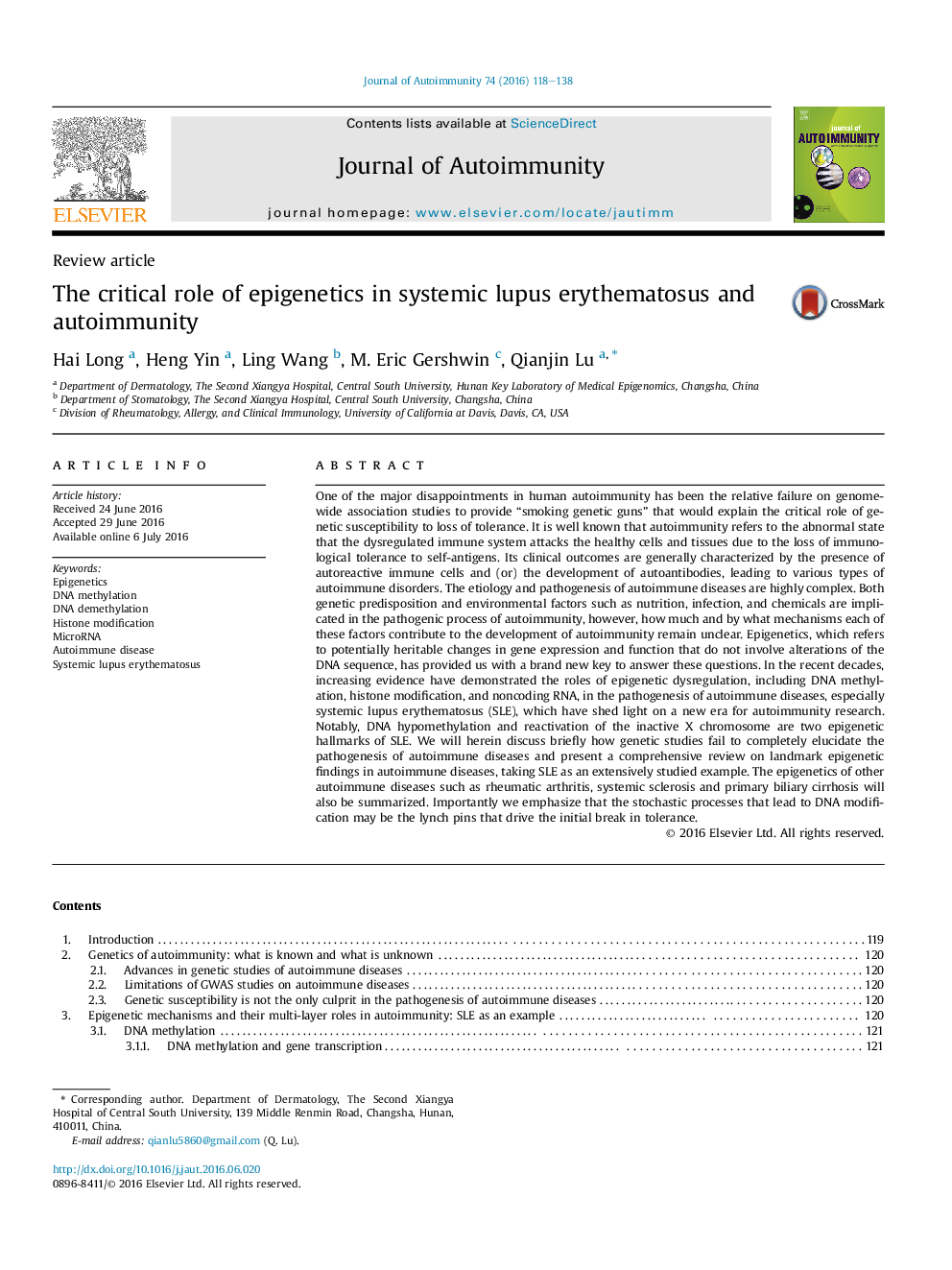| Article ID | Journal | Published Year | Pages | File Type |
|---|---|---|---|---|
| 5667902 | Journal of Autoimmunity | 2016 | 21 Pages |
â¢Epigenetic dysregulation plays crucial roles in pathogenesis of autoimmune diseases.â¢DNA demethylation is a hallmark of the epigenetic dysregulation in SLE CD4+ T cells.â¢Different epigenetic factors interplay in the mechanisms of autoimmune diseases.â¢Interactions among genetics, epigenetics and environment contribute to autoimmunity.â¢Epigenetic research progresses have shed new light on potential therapeutic measures.
One of the major disappointments in human autoimmunity has been the relative failure on genome-wide association studies to provide “smoking genetic guns” that would explain the critical role of genetic susceptibility to loss of tolerance. It is well known that autoimmunity refers to the abnormal state that the dysregulated immune system attacks the healthy cells and tissues due to the loss of immunological tolerance to self-antigens. Its clinical outcomes are generally characterized by the presence of autoreactive immune cells and (or) the development of autoantibodies, leading to various types of autoimmune disorders. The etiology and pathogenesis of autoimmune diseases are highly complex. Both genetic predisposition and environmental factors such as nutrition, infection, and chemicals are implicated in the pathogenic process of autoimmunity, however, how much and by what mechanisms each of these factors contribute to the development of autoimmunity remain unclear. Epigenetics, which refers to potentially heritable changes in gene expression and function that do not involve alterations of the DNA sequence, has provided us with a brand new key to answer these questions. In the recent decades, increasing evidence have demonstrated the roles of epigenetic dysregulation, including DNA methylation, histone modification, and noncoding RNA, in the pathogenesis of autoimmune diseases, especially systemic lupus erythematosus (SLE), which have shed light on a new era for autoimmunity research. Notably, DNA hypomethylation and reactivation of the inactive X chromosome are two epigenetic hallmarks of SLE. We will herein discuss briefly how genetic studies fail to completely elucidate the pathogenesis of autoimmune diseases and present a comprehensive review on landmark epigenetic findings in autoimmune diseases, taking SLE as an extensively studied example. The epigenetics of other autoimmune diseases such as rheumatic arthritis, systemic sclerosis and primary biliary cirrhosis will also be summarized. Importantly we emphasize that the stochastic processes that lead to DNA modification may be the lynch pins that drive the initial break in tolerance.
